With the announcement of President’s rule in Maharashtra, Shiv Sena, NCP and the Congress party have six months to work out an equation, after no single party won a majority in the recently concluded assembly election. There’s much talk that this will be an ‘unnatural alliance’. But will voters care? A lot will depend on how the alliance partners will spin it for their voters.
For the most part, political parties in India do not usually cross broad ideological lines in building alliances. Using two indices (“politics of recognition” and “politics of statism”) formulated by political scientists Pradeep Chhibber and Rahul Verma to characterise the ideological leanings of political parties, we find that long-standing alliances – the Left alliance in Kerala and West Bengal, the United Democratic Front (UDF) in Kerala, the Congress and Dravida Munnetra Kazhagam (DMK) alliance in Tamil Nadu, the Bharatiya Janata Party (BJP) and Shiv Sena alliance in Maharashtra – are all between ideologically similar allies.
But what happens when parties enter ‘unnatural’ alliances, of the sort that could be currently developing in Maharashtra?
Also read: When enemy’s friend is your friend: Congress-NCP take a leaf out of BJP-Left book
For the most part, these are not stable alliances, and this is rooted in how much voters buy into the narrative the new allies put forward. When parties do contest with ‘unnatural allies’, they do not simply abandon ideological stances, as some simplistic assessments of Indian politics suggest; instead, they pivot to an alternative, but still coherent, ideological stance.
In Bihar, when the Janata Dal (United) or JD(U) and the BJP contest together, the plank tends to be against the misrule and lawlessness of the Lalu Prasad Yadav years. In 2015, when the JD(U), the Congress and the Rashtriya Janata Dal (RJD) contested together, the plank was of secularism, of joining forces against Narendra Modi and the greater evil of Hindutva. But despite this narrative winning, voters had not turned against the Modi-Nitish Kumar combination, and the JD(U) leader would have known as much when he subsequently broke the alliance.
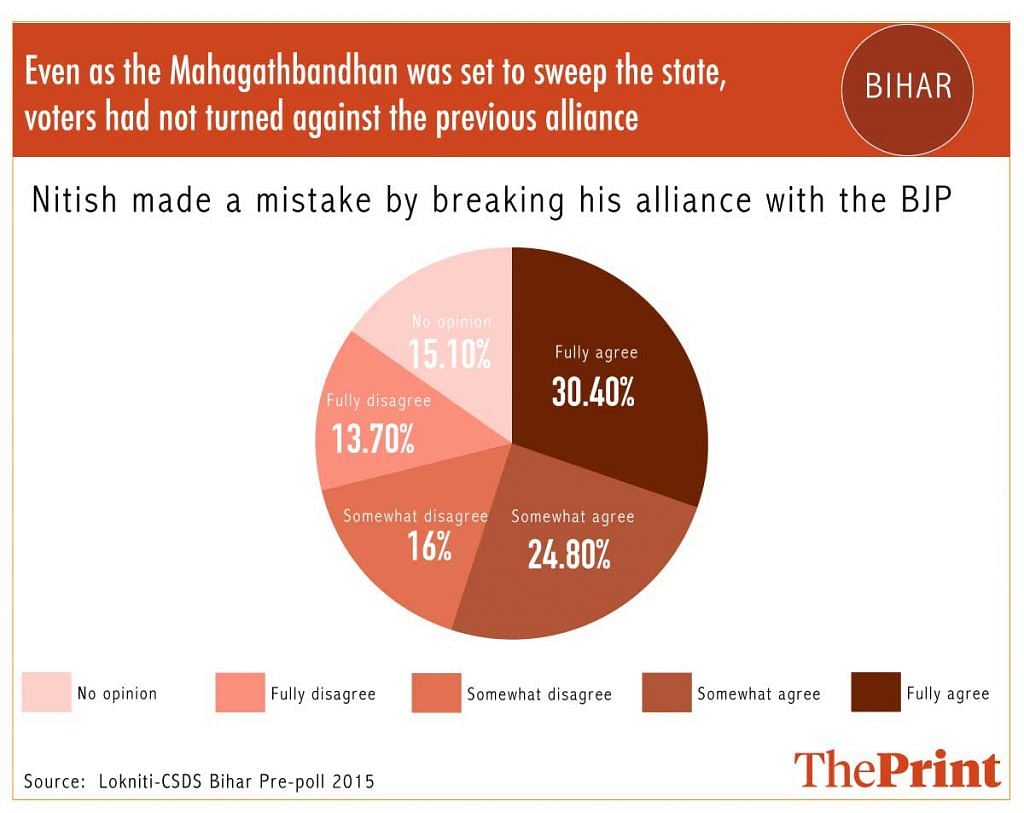
In Uttar Pradesh, when the Bahujan Samaj Party (BSP) and the Samajwadi Party (SP) came together for the first time in 2019, the plank was secularism and defeating Modi. When the BSP came to power in the state with the BJP’s support in 1995 and 1997, on the other hand, the campaign was fought more strongly along caste lines against the Samajwadi Party.
With the 2017 Uttar Pradesh assembly elections, the share of voters who wanted the BSP and SP to ally in the run-up to the election was low, a larger share preferring the Congress-SP alliance. It’s likely that there was little voter enthusiasm for the ill-fated Lok Sabha 2019 alliance between the BSP and the SP.
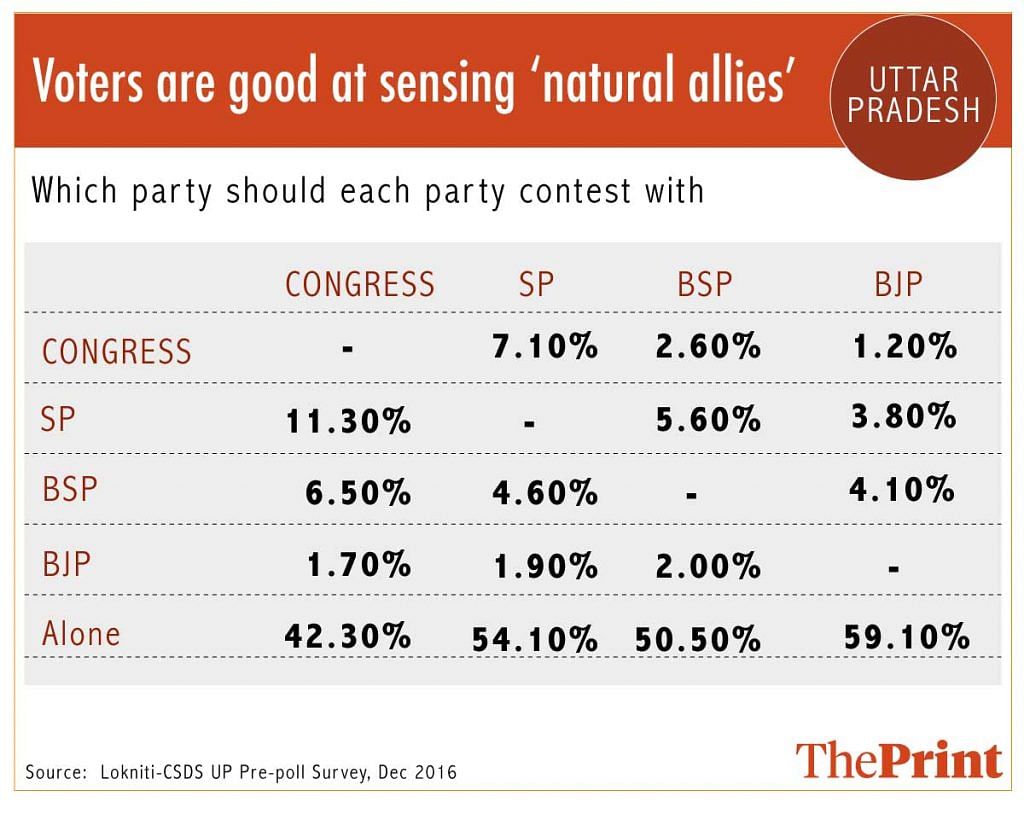
Also read: Sena-Congress ‘friendship’ goes back 50 yrs — a story of helping each other grow in Mumbai
While politically expedient, the Aam Aadmi Party (AAP) did not read voters correctly while aligning with the Congress after a hung assembly in 2013. Its voters are far more ideologically similar to the BJP than they are to the Congress; both before the 2013 election and after the 2015 election, voters were more in favour of a BJP-AAP alliance than a Congress-AAP alliance, and the party would appear to have read the room correctly while breaking the alliance with the Congress.
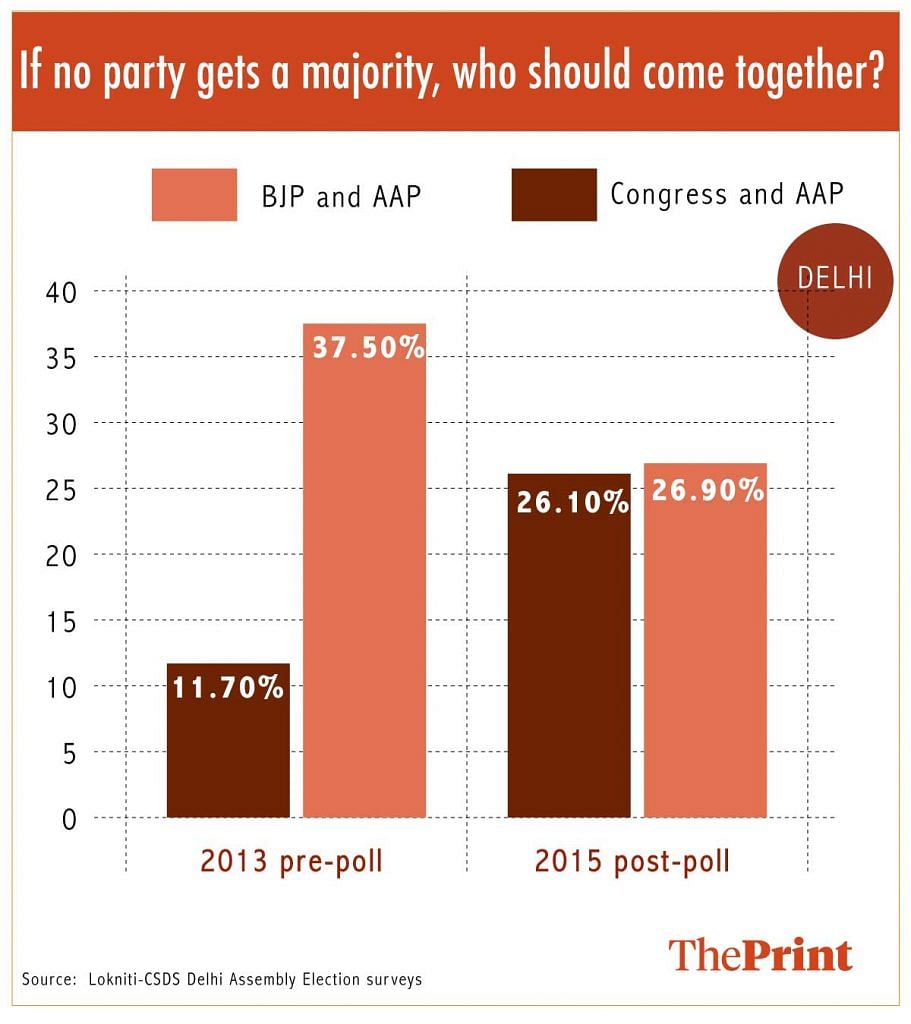
In Karnataka, on the other hand, despite the three parties having contested fiercely against each other, voters were more prepared to accept a Congress-Janata Dal (Secular) alliance than a BJP-JD(S) alliance. (Ultimately, however, the alliance could not withstand manoeuvring by the BJP re-energised by its win in the 2019 Lok Sabha election.)
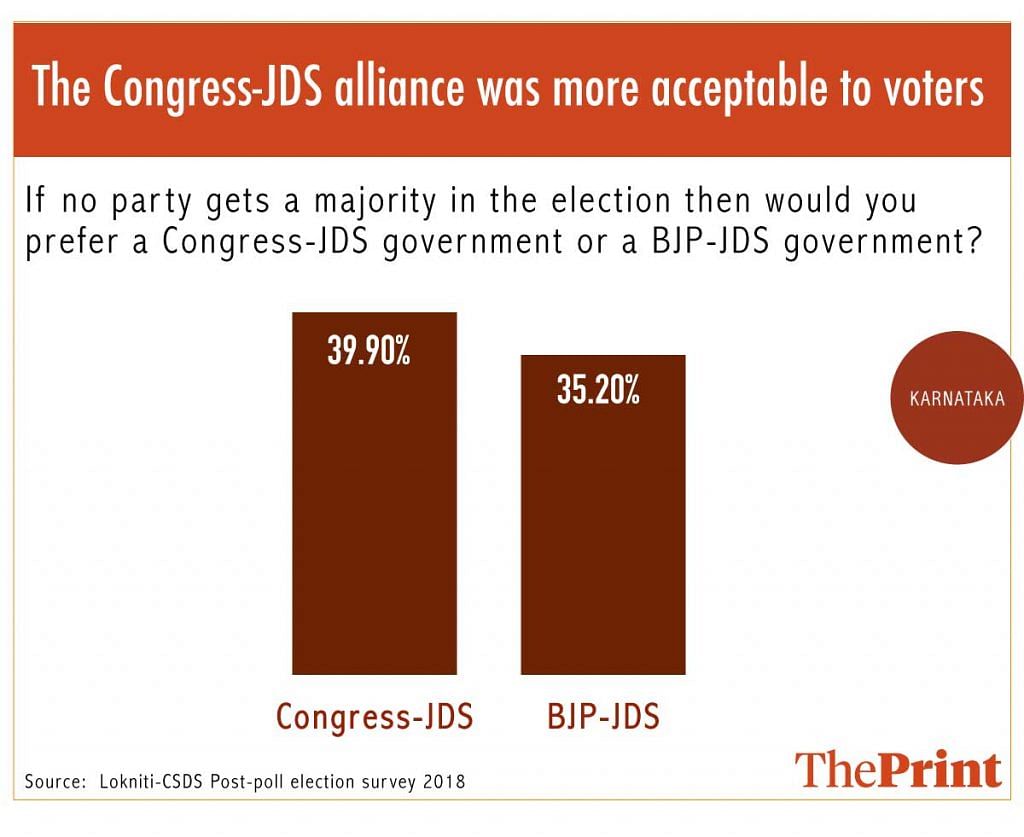
Also read: Best time for BJP to scrap alliance with Shiv Sena & go it alone in Maharashtra
If a Shiv Sena-NCP-Congress does emerge in the next six months, the three parties will need to sell a narrative to their voters that justifies why they have come together after campaigning against each other. That is likely to be a hard sell for all three. In 2014, the four parties contested the state election separately, allowing for the identification of a “true” party voter, rather than an alliance voter. Polling agency C-Voter then looked at the current views of these voters, based on whom they voted for in 2014.
Both Congress and NCP voters identify the state government as the biggest source of their problems, making the acceptability of the Sena as a partner difficult.
The Sena’s voters, it would appear, still identify quite strongly with the BJP, and do not yet have strongly negative feelings for the BJP at the state or central level, or want to end the old alliance.
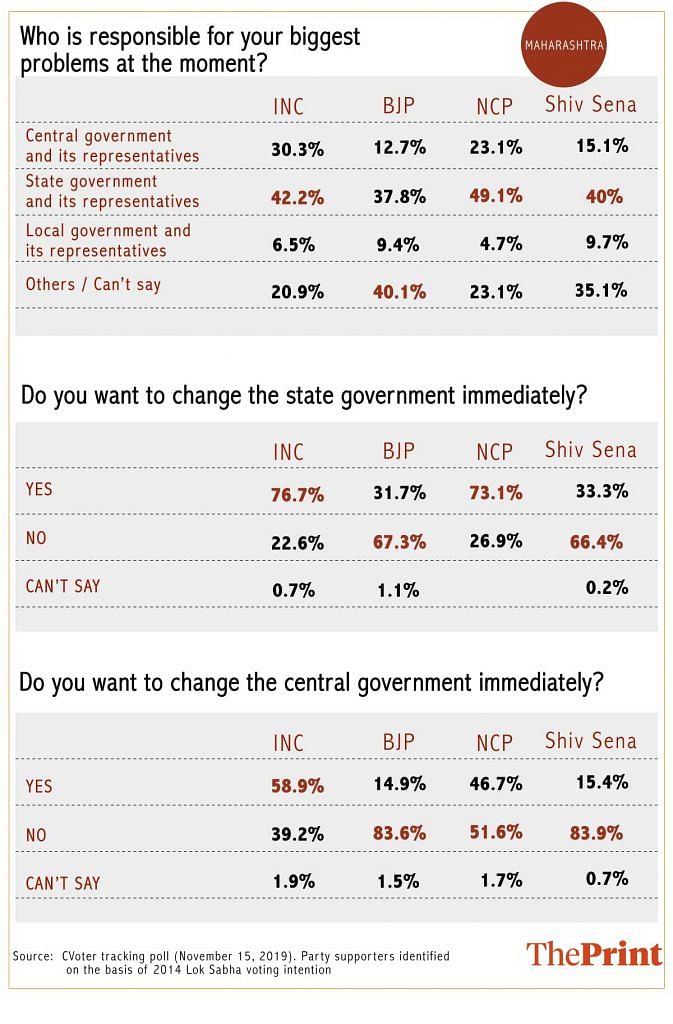
All three will find they have their task cut out.
The author is a Chennai-based data journalist. Views are personal.


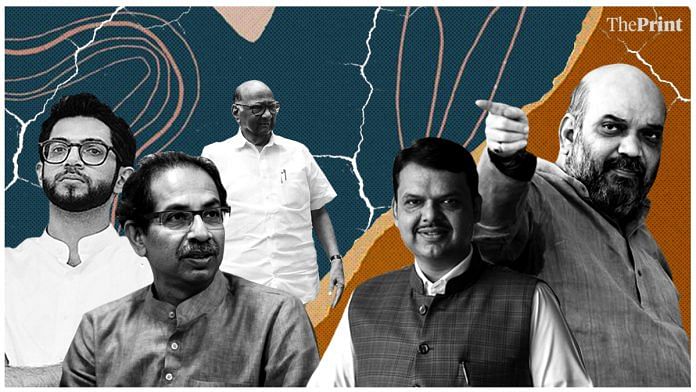

In the first place, these political parties have NO ideologies in reality ,. Which is the reason for the easy making and breaking of their so called “Alliances”. It is all only a matter of “Convenience” for grabbing POWER. ‘Ideologies’ are for the Birds.
If the analysis in this article is true, and there is no reason to doubt otherwise, then the question is: Why is Shiv Sena suddenly ditching their ideological fellow traveller, BJP? Why are they willing to entertain entering an ‘unholy’ and ‘opportunistic’ alliance with so-called secular parties like NCP and INC? The answer perhaps lie in Fear. SS is not dumb to read the writing on the wall; they fear that eventually they will be gobbled up by Amit Shah inspired BJP in their quest for ‘one nation, one party, hegemony. Today, SS has certain leverage to halt the BJP juggernaut but tomorrow they will become a footnote in history. One has to look at JD(U) in Bihar to know what is in store for smaller, regional parties who align with BJP – their identity will be erased and they will at best become an appendage to the big brother. SS knows this very well and therefore trying their best to keep from being swallowed up, even if that means entering into an alliance of convenience. One wouldn’t be surprised if other small regional parties like BJD begin to distance themselves from the BJP, in future.
1. Yesterday, there was an interesting news report. As per this news report, Shiv Sena, through its mouthpiece, “SAMANA”, has reiterated its stand on and also reconfirmed its belief in the Hindutva ideology. If this averment made by mouth piece of Shiv Sena is true, then the question is whether it is acceptable to leaders of NCP & Congress, two other parties who often proclaim secular agenda, form an alliance government with Shiv Sena. 2. In politics alliances are nothing new. Alliances have to be between like-minded parties and not between competitors and political opponents. But alliances of parties with opposite views are mere opportunistic alliances. Therefore, alliance of Congress, NCP and Shiv Sena can never be an easy alliance, but a mere temporary arrangement to deny power to BJP. It needs to be reemphasized that all opportunistic alliances, like the one to be made between SS, NCP & Congress, will have a short life.
After reviewing conduct of Shivsena, decision for Government formation to be taken after winter session by Pawar & Sonia.